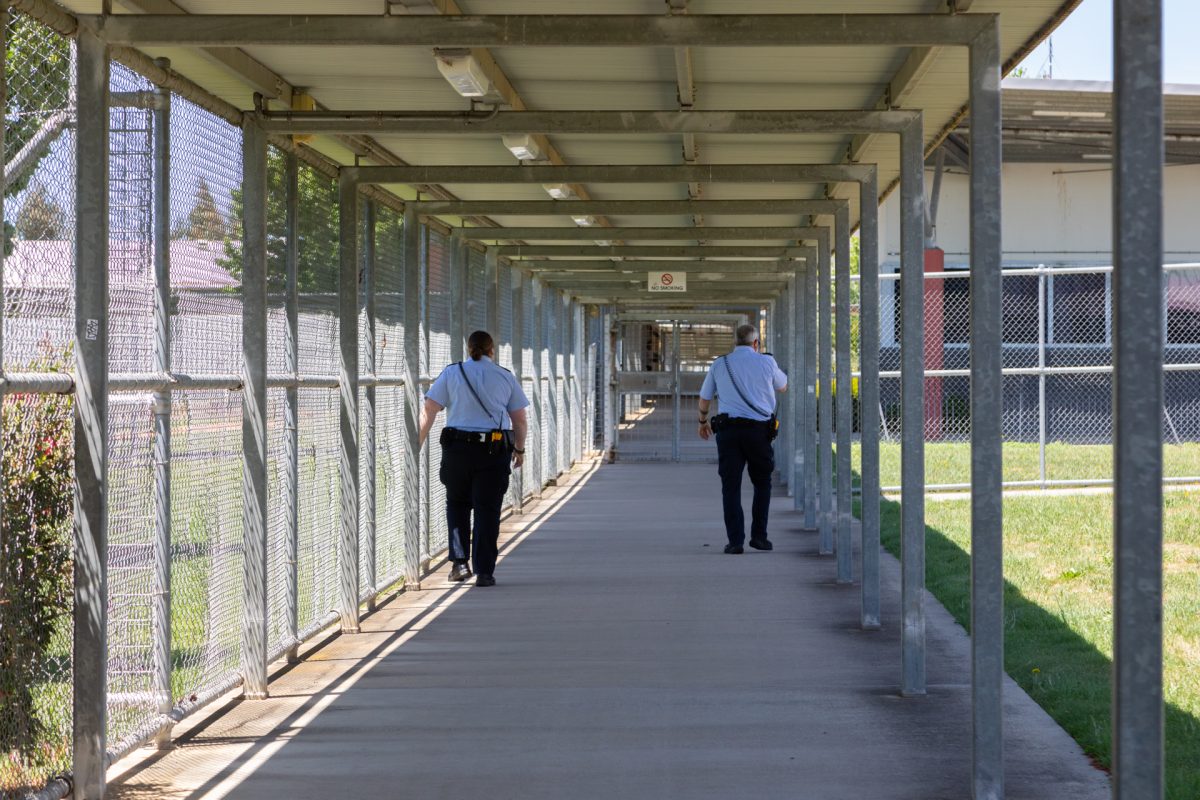
Management of parole processes at the Alexander Maconochie Centre (AMC) have improved on paper, but the ombudsman is yet to assess “how effectively the new framework is operating in practice”. Photo: Michelle Kroll.
Following an investigation into parole processes at Canberra’s only prison, the Territory’s ombudsman has found ACT Corrective Services (ACTCS) is on the way to fulfilling its obligations – bar one.
In November 2020 the ACT Ombudsman published a report that disclosed “inadequate policies and procedures governing the parole processes at the Alexander Maconochie Centre (AMC)”. The ombudsman’s investigation also found that inconsistent recordkeeping and poor planning meant detainees were “insufficiently prepared to participate in the parole process and consequently unable to access parole at the earliest release date”.
Administrative failures also have the potential to result in “unnecessary detention of a person beyond their earliest release date, infringing on their right to liberty under the Human Rights Act 2004“.
When the average cost of keeping somebody in jail for a year is $198,000 and rate of recidivism is among the highest in the country – the impact of a late and unprepared exit from the AMC is felt throughout the ACT.
However, in a recent review of the ACTCS’ progress, it seems the agency is making progress on the 15 recommendations it was handed and accepted in full.
These recommendations aimed at the ACTCS looked to establish a transparent policy framework for parole processes, implement effective business planning and recordkeeping, and improve specific aspects of sentence management and parole processes.
In reviewing its progress, ACT Ombudsman Iain Anderson reported that 14 recommendations had been implemented, leaving only one “partially implemented”.
The ombudsman claims these recommendations have “led to a significant uplift in ACTCS’ policies and procedures to support parole processes, a new information management system, and embedded arrangements with Housing ACT to support the Justice Housing Program”.
However, Mr Anderson noted there was still much to do.
“While we have assessed almost all recommendations as implemented, given the policy framework and systems are now in place at ACTCS, we have not assessed how effectively the new framework is operating in practice,” he said.
“We will continue to monitor this and may choose to investigate any emerging areas of concern.”

The ACT has the highest rate of people on remand of all Australian jurisdictions. Photo: Michelle Kroll.
The partially implemented recommendation asked ACTCS to “identify and implement new arrangements to ensure programs are more accessible to detained people, and particularly for those on remand”.
Evidence provided to the ombudsman indicated the brief intervention programs (BIP) and SMART (Self Management and Recovery Training) programs are available to both sentenced and remanded people. They also found that all participants who started these programs completed them.
“Unfortunately, ACTCS was unable to provide details of how many of the participants in these programs were on remand, meaning it is unclear whether people on remand were accessing the available programs,” reports the ombudsman.
The number of unsentenced detainees, including those awaiting trial, in the AMC was just under half (46.5 per cent) of the total prison population at 30 June 2023.
The ACTCS also showed the ombudsman it had successfully run programs including a Young Offender Reintegration Pilot, group interventions intended to reduce the risk of repeat offenders (e.g. sex offender program) and Solaris (a program for male detainees who have alcohol and other drug dependency issues).
Despite these “positive steps”, the ombudsman reported it had been made “aware from our oversight activities and complaints to our office that detained people continue to experience challenges in accessing these programs”.
However ACTCS claims that programs may not run if there are insufficient referrals or for operational reasons, such as a prison lockdown, staff training and custodial officers being redeployed elsewhere.
The ombudsman also noted that “recent decisions in the ACT Supreme Court about the legality of detaining people on remand with those serving sentences impacting ACTCS’ programs and schedules” were “likely to impact program availability and accessibility to those on remand”.
“We will continue to seek updates from ACTCS on its work to implement effective arrangements,” reported the ombudsman.








